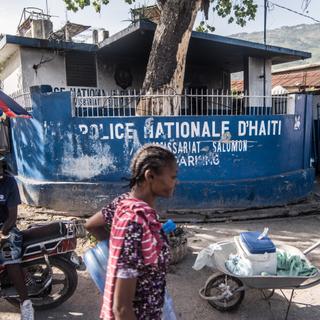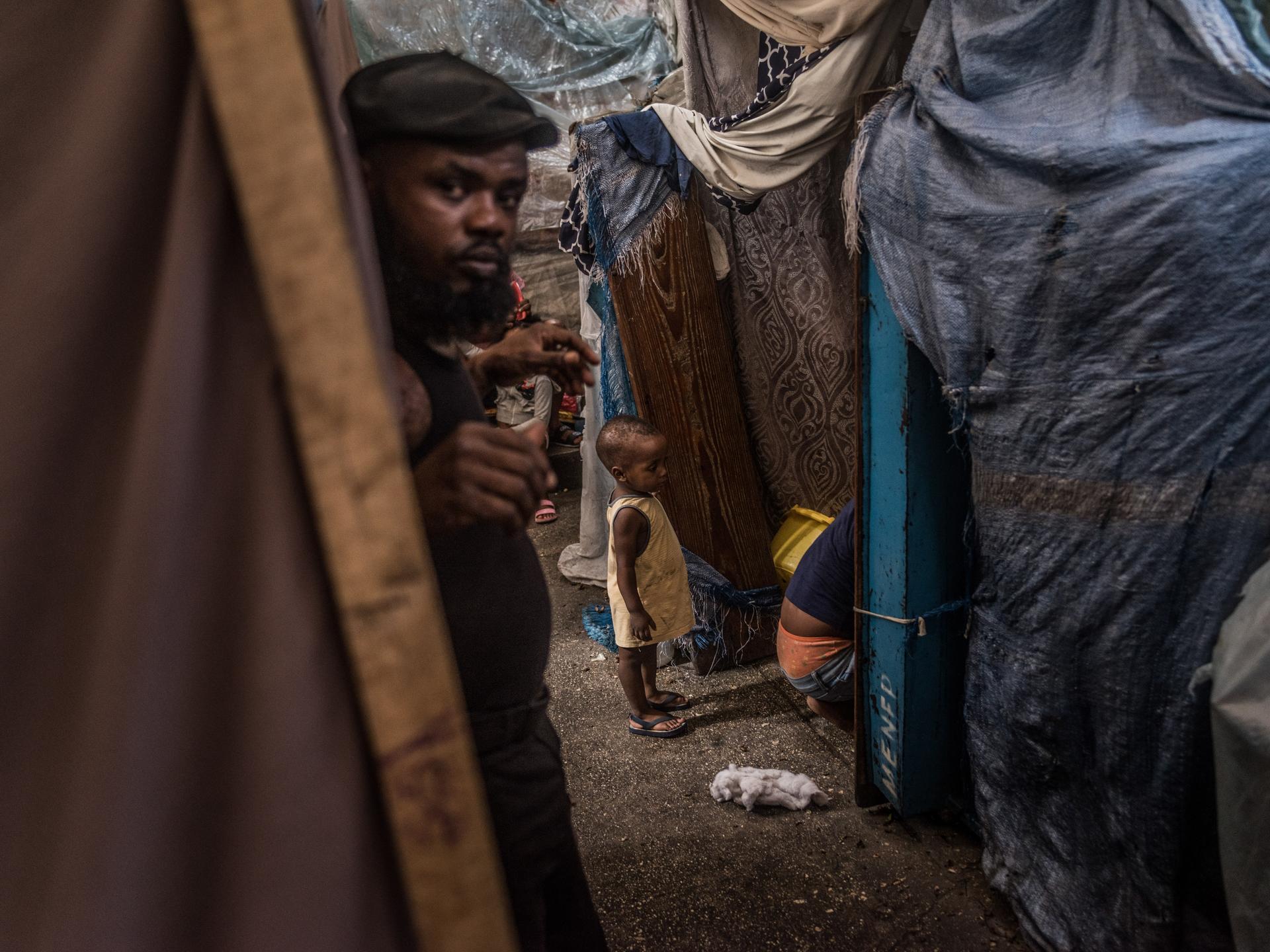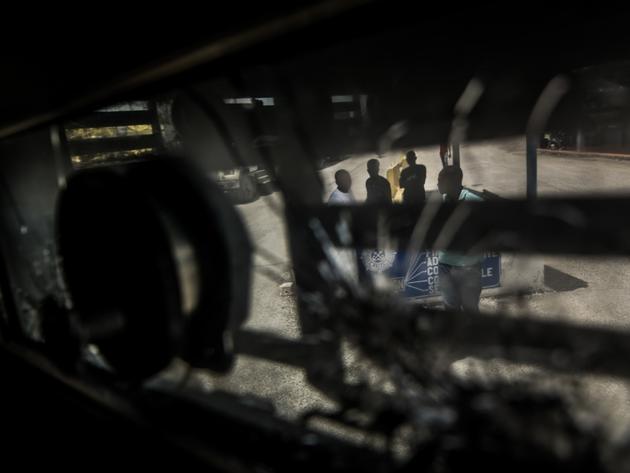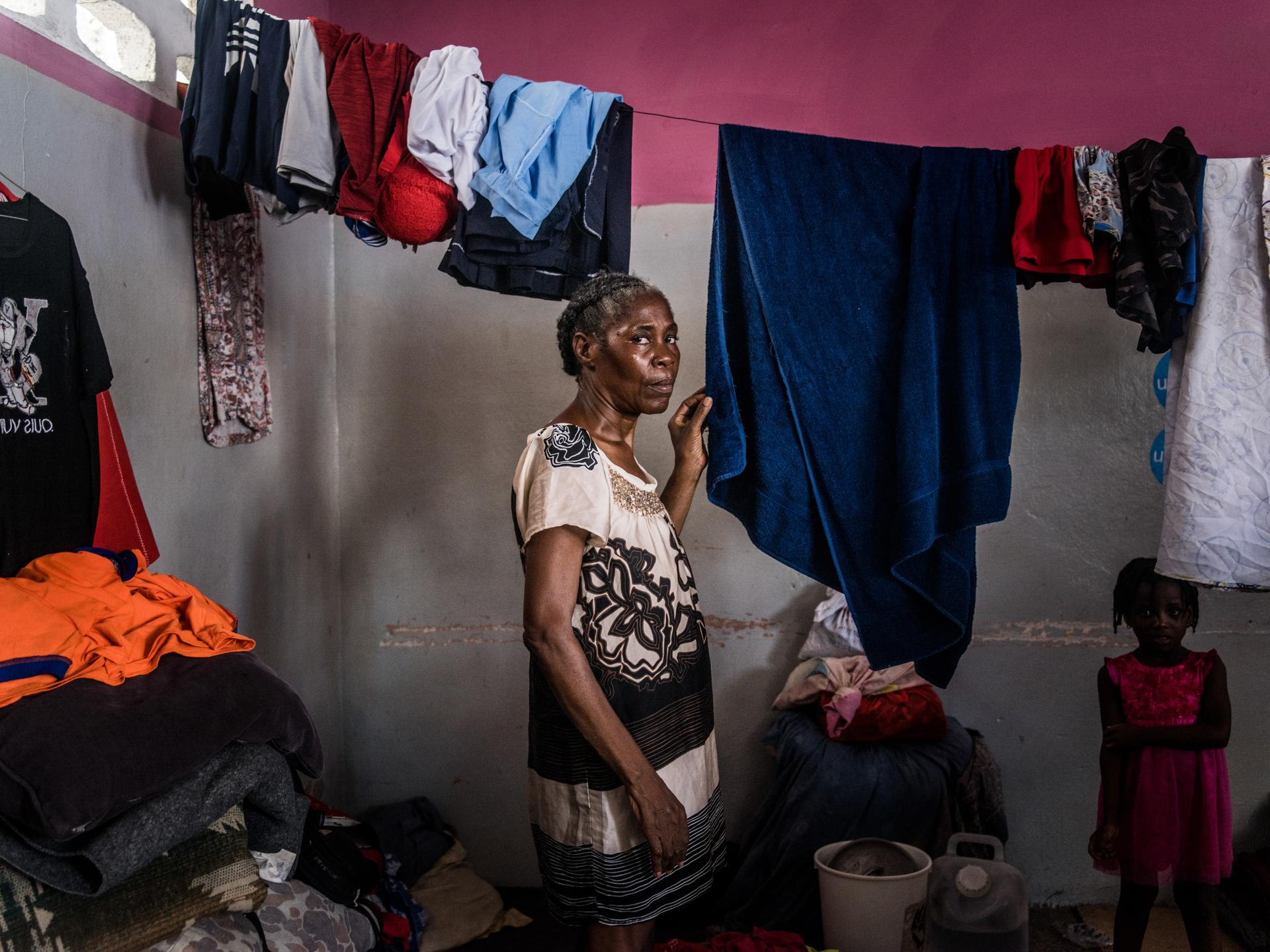


Haiti's capital in the grip of gangs: 'We eat well two days a week'
FeaturePort-au-Prince is 80% controlled by armed groups who terrorize the population. Several tens of thousands of inhabitants, driven from their homes by these gangs, are crammed into makeshift camps where they suffer from hunger.
"Get out of the way! Let us through!" Four men pushed their way through the crowd gathered in the narrow aisles, lined with stalls and makeshift tents, of the displaced persons camp at the Ecole Nationale Darius-Denis, in Port-au-Prince, the Haitian capital. Advancing with rapid steps, they carried the lifeless body of a woman, each holding her up by one of her limbs. "She's had a heart attack," said a spectator of the scene. "But no, it's an epileptic seizure: She's frothing," said another. The unfortunate woman and her four rescuers disappeared behind a group of onlookers.

Moments later, this incident seemed already forgotten in the hustle and bustle of this overcrowded camp. This is where the inhabitants of Port-au-Prince have taken refuge after being driven from their homes by the criminal gangs that control almost 80% of the city.
On Wednesday, July 17, in an attempt to regain control of the situation, Haiti's Prime Minister Garry Conille announced the introduction of a state of security emergency in 14 communes where violence is concentrated. In these localities, located on the outskirts of Port-au-Prince and in the Artibonite department, "a series of concrete and decisive measures will be implemented to combat insecurity and restore peace," said the head of government, in a speech to the nation broadcast on social media.

These announcements are still far from improving the daily lives of the residents of the Darius-Denis school. "There are 376 families living here, making a total of 1,264 people," said Chéry Isaac, a 28-year-old who introduced himself as the camp's president. The displaced people, who are crammed into the buildings and playground of this public elementary school in the capital's downtown area, used to live mostly in the working-class neighborhoods of Carrefour Feuilles and Savane Pistache.
'We left with nothing'
In August 2023, a new series of violent acts committed by the Gran Ravin gang drove several thousand residents out of these areas in the space of a few days. "Before, we weren't rich, but we had our house," said Elodie Auguste, a 60-year-old woman who arrived on this site with her five children and 5-year-old granddaughter. "We left with nothing. They burned everything, we couldn't save a thing."

In many cases, the assailants did not hesitate to attack the inhabitants directly. Gyvelove Saint-Fleur's life was turned upside down one day in February 2023. "They raped me. They raped 13 other women," said the 18-year-old mother of two. Her big eyes overflowed with tears as she recounted her ordeal. "They murdered my cousin. She was only 16! They killed the boys who tried to resist. They told me it was because of my two children that they were letting me live," she said.
You have 72.53% of this article left to read. The rest is for subscribers only.
